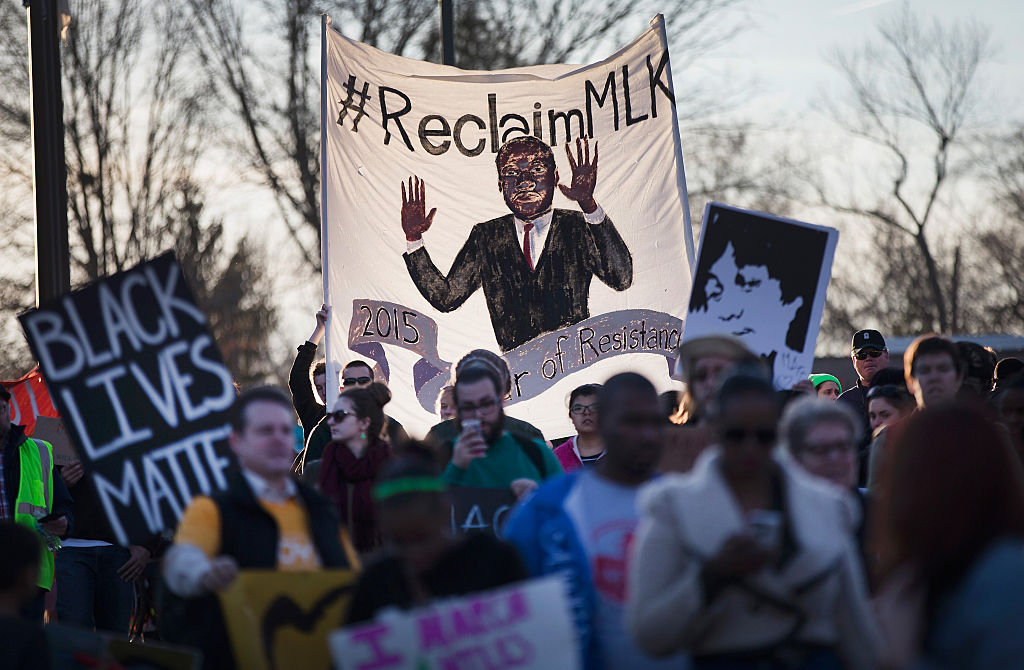Martin Luther King is easily misrepresented in our era of heightened identity politics, and of scepticism towards grand unifying ideals. For him, the campaign for black civil rights was firmly rooted in a very grand moral and political vision. Today’s progressives have largely lost sight of this wider vision; indeed the thought of it embarrasses them. It seems naïve, unrealistic. Its grandeur is more likely to be mocked than honoured. To black activist writers such as Ta-Nehisi Coates (whom I recently discussed here) it seems a mask for complacent racism.
The remarkable thing about King is that he expressed the core ideals of America, and the West, with new intensity and fullness. I can almost hear the sneering at that phrase, ‘the core ideals of America, and the West’ – haven’t we learned to see such idealism as hopelessly naïve? But such sneering is a betrayal of King. He was a believer, perhaps the supreme and exemplary believer, in the ideal of universal human brotherhood.

Britain’s best politics newsletters
You get two free articles each week when you sign up to The Spectator’s emails.
Already a subscriber? Log in







Comments
Join the debate for just £1 a month
Be part of the conversation with other Spectator readers by getting your first three months for £3.
UNLOCK ACCESS Just £1 a monthAlready a subscriber? Log in